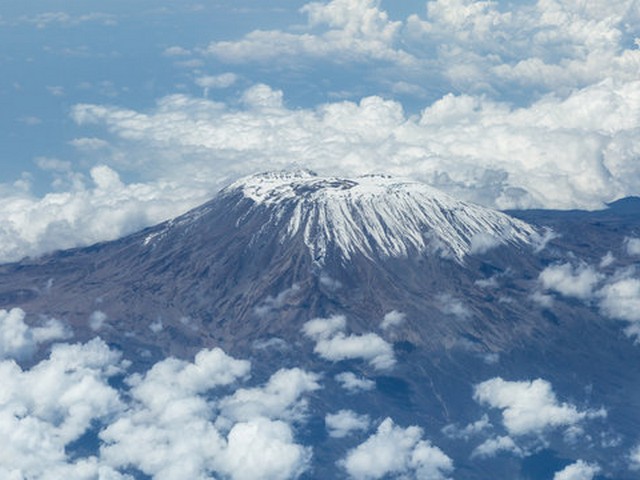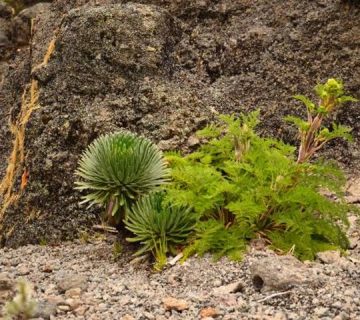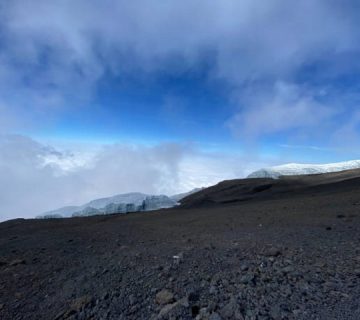Kilimanjaro Trekking Permit Information: Your Ultimate Guide to the Roof of Africa
Embarking on a journey to conquer Mount Kilimanjaro is not just about physical endurance; it’s about embracing a once-in-a-lifetime adventure that invites you to step into the extraordinary. At the Kilimanjaro Centre for Trekking and Ecotourism (KCTE), we understand that the summit of Kilimanjaro isn’t just a place, but a new perspective. Before you lace up your boots and set out to touch the sky, there’s crucial paperwork to sort – your trekking permit. This guide provides all the essential information you need to ensure your climb is nothing short of exhilarating.
Why is a Kilimanjaro Trekking Permit Essential?
Kilimanjaro isn’t merely a mountain; it’s a beacon for adventurers worldwide and a protected area under Tanzanian law. The Kilimanjaro National Park Authority requires every climber to have a permit, ensuring your safety, supporting conservation efforts, and enhancing your overall trekking experience. These permits are crucial as they contribute to maintaining the park’s infrastructure, conserving the environment, and supporting local communities.
How to Obtain a Kilimanjaro Trekking Permit
Step-by-Step Process
-
Choose Your Route: Kilimanjaro offers several routes like Marangu, Machame, and Lemosho. Each provides a unique experience. Deciding on the route helps determine the cost and duration of your permit.
-
Book Through a Licensed Agency: Permits are not issued to individuals but through registered trekking agencies. At KCTE, we handle all the details of your permit application. You simply need to provide us with your personal information and trekking dates.
-
Permit Costs: The cost includes park entry fees, camping/hut fees, rescue fees, and conservation fees. Prices vary depending on your route and the number of days you plan to spend on the mountain.
-
Timing: It’s advisable to apply for your permit through KCTE at least a few months in advance, especially during peak seasons to guarantee your spot.
What’s Included in Your Permit?
When you secure a permit through KCTE, it covers:
- Entry into Kilimanjaro National Park
- Overnight stays in designated campgrounds or huts
- Rescue services
- Park maintenance and conservation charges
Best Time to Climb Kilimanjaro
Timing is everything when planning your Kilimanjaro adventure. The best times to climb are during the dry seasons: January to mid-March and June to October. These months offer the most favorable weather conditions for trekking.
Preparing for Your Trek: Tips and Recommendations
Physical Preparation
Kilimanjaro is a demanding climb, and being in good physical condition is essential. Engage in regular cardio, strength training, and hiking to prepare your body.
Gear and Equipment
Invest in quality trekking gear. Essential items include:
- Thermal clothing
- Waterproof hiking boots
- A warm sleeping bag
- Headlamps
- Walking poles
At KCTE, we also provide detailed gear lists and rental options for your convenience.
Health and Safety
Consult with a healthcare provider before your trip, especially concerning altitude sickness. Carry necessary medications and stay hydrated throughout your climb.
Why Choose KCTE for Your Kilimanjaro Adventure?
Choosing the right tour operator can make all the difference in your Kilimanjaro experience. At KCTE, we not only ensure all logistical aspects of your permit are managed seamlessly, but we also provide:
- Experienced, certified guides
- Comprehensive pre-climb training and briefings
- High-quality equipment and meal provisions
- Commitment to ecological conservation
- Safety protocols and 24/7 support
Making Your Dream Climb a Reality
At KCTE, we believe every climber carries a dream – to stand atop Africa’s highest peak and look out over the world below. We are here to turn that dream into reality. From handling your Kilimanjaro trekking permit to guiding you every step of the way, we ensure your journey is memorable and impactful.
FAQs on Kilimanjaro Trekking Permits
Q1: Can I get a Kilimanjaro trekking permit on my own?
A1: No, permits are only issued through licensed trekking agencies like KCTE.
Q2: How far in advance should I book my trek?
A2: We recommend booking at least 3-6 months in advance, especially during peak seasons.
Q3: Are there age restrictions for climbing Kilimanjaro?
A3: Yes, the minimum age is 10 years old, but there’s no maximum age as long as you’re fit and healthy.
Q4: What happens if I have to cancel my trip?
A4: We offer a flexible cancellation policy, though terms vary. Contact us directly for detailed information.
Conclusion: Embark on Your Kilimanjaro Journey with Confidence
Armed with your trekking permit and the expert support from Kilimanjaro Centre for Trekking and Ecotourism, you’re ready to conquer Kilimanjaro. Remember, it’s not just about reaching the summit; it’s about the journey, the landscapes, and the friendships you’ll forge along the way.
Are you ready to take the first step on your Kilimanjaro adventure? Contact KCTE today, and let’s make your mountain dreams come true. Visit our website or call us to start planning your unforgettable climb with the best in the business. Your adventure begins here!




